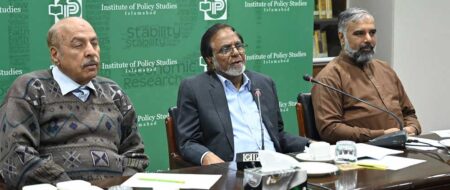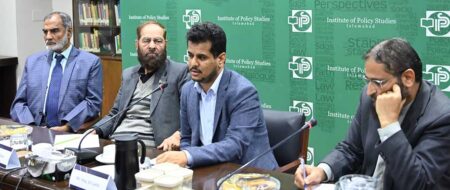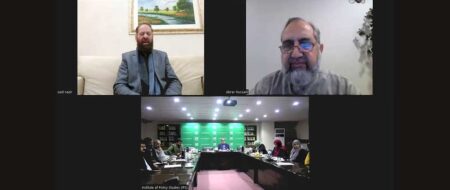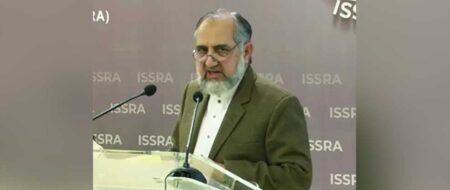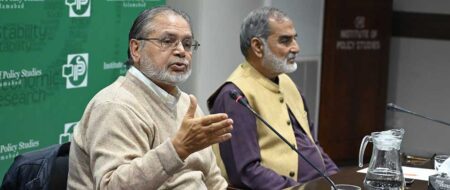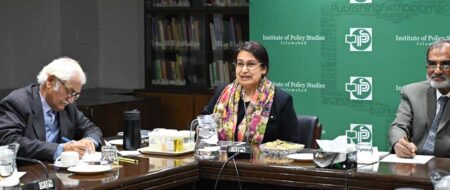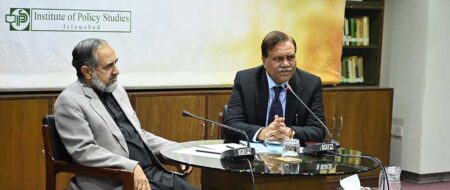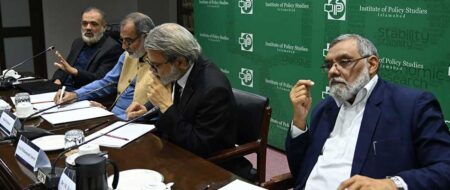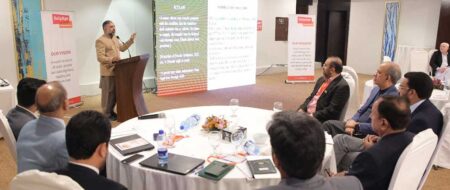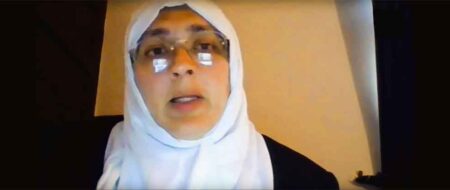FATA Reforms: Proposals, Consequences and Approaches
Mainstreaming FATA no longer a matter of choice
Mainstreaming the Federally Administered Tribal Areas (FATA) is no longer a matter of choice for Pakistan and must be carried out at the earliest according to wishes of the tribal people; the best methods for which could be a referendum or large-scale consultations with the tribal and key opinion leaders of the region.
This was the crux of a policy dialogue: ‘FATA Reforms: Proposals, Consequences and Approaches’ organized by the Institute of Policy Studies (IPS), Islamabad on December 21, 2015,.
The session was held in continuation of a series of programs organized by the Institute earlier, and was addressed by eminent voices on the subject including Ambassador (retd) Ayaz Wazir, Mian Iftikhar Hussain, former KPK minister for information and secretary general, Awami National Party (ANP), Habibullah Khan, former secretary, FATA directorate, Haroon ur Rasheed, former MNA from FATA and Jamaat-e-Islami leader, Dr. Ashraf Ali, executive director, Zcomms Centre for Research & Development, Dr. Fakhrul Islam, director, Pakistan Study Centre, University of Peshawar, IPS Associate and security analyst Brigadier (retd) Said Nazir, Commander (retd) Dr. Azhar Ahmad and DG-IPS Khalid Rahman.
Brigadier (retd) Nazir in his keynote presentation outlined the constitutional and political history of FATA and called for amendment in Article 247 of the Constitution to give fundamental rights to the tribals. He said, based on public opinion, there were three main options for the future of FATA: 1. Merger with KPK, 2. Changing its status from FATA to PATA, and 3. Separate province. The people of FATA should be allowed to choose among the three options via referendum in each tribal agency, he demanded.
Dr. Fakhrul Islam said that earlier it was only the educated people who wanted reforms for the region but with the awareness and exposure gained by millions of IDPs during their camp stay in settled areas, they too want to see their hometowns uplifted.
Speaking on the occasion, Dr Fakhrul Islam said that FATA’ s merger with KP or giving it a status of a province should be decided by the tribals themselves. Any solution imposed on them will be counterproductive. To ascertain their opinion, a phased referendum should be held separately in all seven Agencies and six Frontier Regions. People of FATA had wasted an opportunity of incorporating their reforms in the 18th Amendment in 2010. Now another opportunity is knocking at their doors. This opportunity is more important in the sense that there is a consensus on the issue of scrapping the old system and putting in place a new one. Political forces and parliamentarians should support the tribals rather than seeking their own party benefits or point scoring.
Mian Iftikhar however felt that the decision over the issue could only be taken on the basis of majority opinion, fearing that unanimous agreement in this regard may not be possible. The different agencies of FATA, according to him, were not even connected to each other via road network and in the given situation he found it unlikely for the people of these divided communities to voice a similar opinion.
He, however, stressed that the present situation of neglect and deprivation in FATA cannot be allowed to prevail and it was about time that the people, their leaders and specially the elected parliamentarians of FATA were empowered and authorized to make their own decisions.
Presenting his set of recommendations for the rehabilitation of the war-torn region of FATA, the speaker stressed that the Constitution of Pakistan must be extended into the tribal region while development initiatives, including the region’s linking with CPEC, must be planned.
Ayaz Wazir, viewed that the only practical way forward to finding a sustainable solution to the problem was the appointment of local tribal governor who would raise awareness among the people over the issue before holding a referendum seeking public opinion over the possible options.
The discussant was also very critical over the composition of FATA Reforms Committee which lacked any representation from the region itself. He said that the members of the committee were not true representatives of the region as they were nominated by the government and not selected by the people.
Habibullah was of the view that a constitutional solution to the FATA issue was very much possible if the government was serious towards resolving this burning issue. The acceptance for the reforms, in his opinion, could only be sought by constituting a special body comprising indigenous FATA representatives who would spread awareness on the matter before starting the consultative process, which should be followed by a referendum to decide the fate of FATA.
Haroon-ur-Rasheed advocated for giving the status of PATA to the federally administered tribal areas and claimed that his party (JI) has built consensus on this solution through a Jirga held recently in Islamabad on 3 November 2015.
DG-IPS Khalid Rahman in his concluding remarks opined that it was heartening to see an environment where both the government as well as the people of the tribal region seemed keen on mainstreaming FATA. He pressed on capitalizing the current situation by taking proactive steps to ensure that the constitutional, political, democratic and structural reforms for FATA take place as per the will of its inhabitants.



